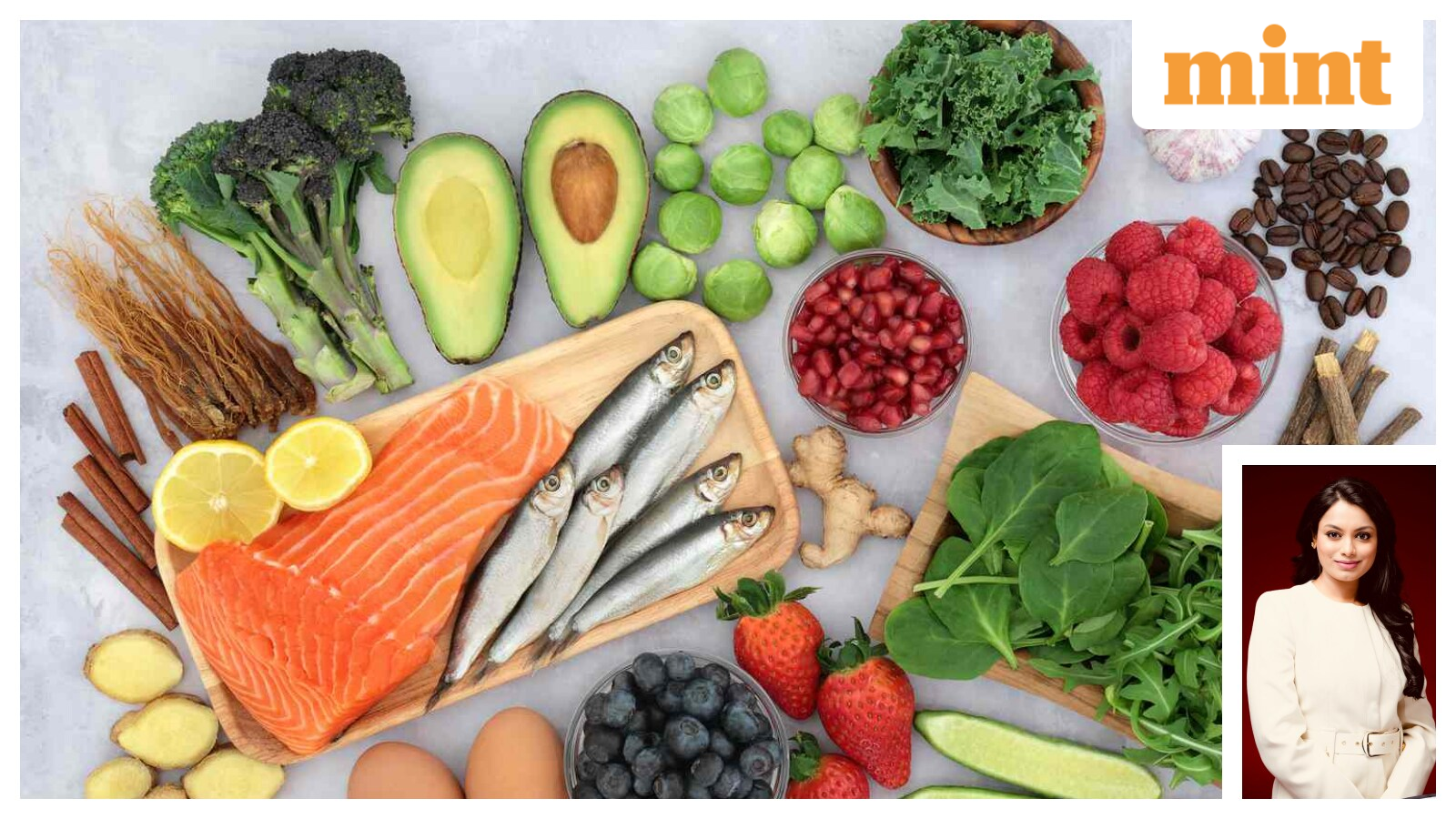Science
Nutritionist Unveils Anti-Ageing Diet Plan for Healthier Living

As people age, the visible signs such as wrinkles and grey hair often overshadow the internal changes that begin much earlier. According to nutritionist Dr. Rohini Patil, making informed dietary choices can significantly influence the ageing process, promoting healthier living and longevity. Dr. Patil outlines a comprehensive nutrition plan aimed at reducing oxidative stress and inflammation, factors that contribute to accelerated ageing.
Chronic inflammation and oxidative stress are critical elements in the ageing process, leading to cellular damage and various health complications. Dr. Patil emphasizes that adopting a tailored anti-ageing nutrition strategy can mitigate these effects. She states, “My anti-ageing strategies focus on reducing inflammation, promoting cell repair, and enhancing overall health through informed food choices.”
Key Components of an Anti-Ageing Diet
The cornerstone of any effective anti-ageing plan is an anti-inflammatory diet, which prioritizes whole, plant-based foods abundant in nutrients. According to Dr. Patil, “Vegetables, fruits, legumes, whole grains, and healthy oils contain many compounds that fight inflammation and protect against damage from free radicals.” These foods not only combat oxidative stress but also help maintain a healthy immune system as one ages.
Protein plays a vital role in supporting muscle health and cellular repair. Dr. Patil advises that “including good sources of protein in every meal can benefit health.” As muscle strength tends to decline with age, sufficient protein intake becomes essential for maintaining overall body function.
Intermittent fasting has gained attention for its potential benefits in promoting mindful eating and cellular healing. Dr. Patil explains, “Instead of snacking without thinking, it teaches you to distinguish between emotional cravings and genuine hunger.” This approach encourages individuals to focus on the quality of their food rather than merely the quantity.
Holistic Lifestyle Changes
Beyond dietary adjustments, Dr. Patil highlights the importance of lifestyle choices such as avoiding smoking and excessive alcohol consumption, both of which can accelerate skin ageing and contribute to health issues. “These habits can harm your heart and your skin, leading to wrinkles and a dull appearance,” she cautions.
Staying adequately hydrated is another crucial aspect of maintaining health as one ages. Dr. Patil stresses that “drinking enough water helps keep your skin looking good and supports strong joints.” Proper hydration can enhance overall vitality, especially during busy periods.
Incorporating foods rich in vitamin C and polyphenols can further support gut health and cellular function. Dr. Patil encourages individuals to consider these dietary changes to boost both health and energy levels.
As a final note, readers are reminded that while nutrition plays a significant role in healthy ageing, individual health concerns should always be discussed with a qualified healthcare professional.
This article serves as a guide for those looking to enhance their health and longevity through dietary choices. By focusing on anti-inflammatory foods and mindful eating practices, individuals can take proactive steps towards a healthier future.
-

 World5 months ago
World5 months agoSBI Announces QIP Floor Price at ₹811.05 Per Share
-

 Lifestyle5 months ago
Lifestyle5 months agoCept Unveils ₹3.1 Crore Urban Mobility Plan for Sustainable Growth
-

 Science4 months ago
Science4 months agoNew Blood Group Discovered in South Indian Woman at Rotary Centre
-

 World5 months ago
World5 months agoTorrential Rains Cause Flash Flooding in New York and New Jersey
-

 Top Stories5 months ago
Top Stories5 months agoKonkani Cultural Organisation to Host Pearl Jubilee in Abu Dhabi
-

 Sports4 months ago
Sports4 months agoBroad Advocates for Bowling Change Ahead of Final Test Against India
-

 Science5 months ago
Science5 months agoNothing Headphone 1 Review: A Bold Contender in Audio Design
-

 Top Stories5 months ago
Top Stories5 months agoAir India Crash Investigation Highlights Boeing Fuel Switch Concerns
-

 Business5 months ago
Business5 months agoIndian Stock Market Rebounds: Sensex and Nifty Rise After Four-Day Decline
-

 Sports4 months ago
Sports4 months agoCristian Totti Retires at 19: Pressure of Fame Takes Toll
-

 Politics5 months ago
Politics5 months agoAbandoned Doberman Finds New Home After Journey to Prague
-

 Top Stories5 months ago
Top Stories5 months agoPatna Bank Manager Abhishek Varun Found Dead in Well









